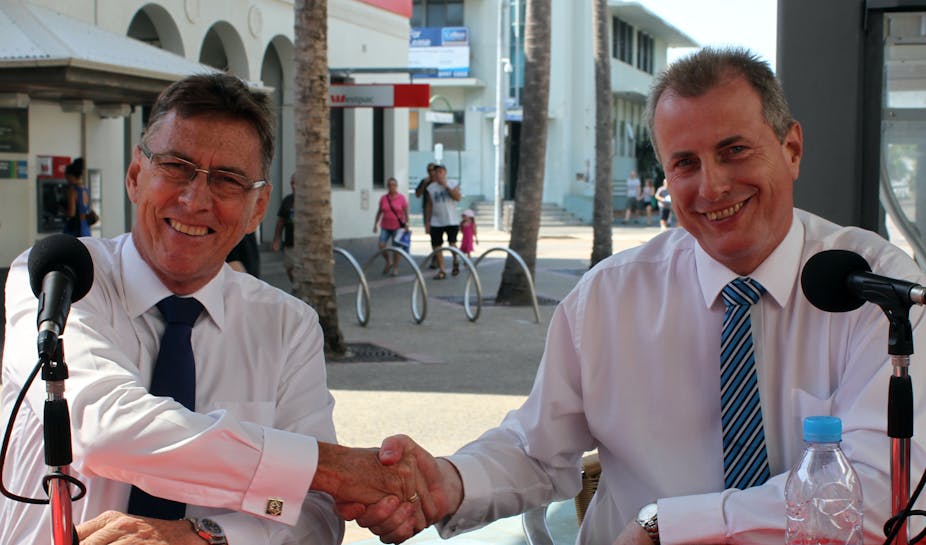This week the Northern Territory News announced that by the end of the week we can expect the notorious “build up” that heralds the end of the dry season, to begin.
Today the first clouds we have seen for months appeared on the horizon and patches of fog, which residents find particularly offensive (reminders of the south), drifted across Darwin harbour and settled into hollows. From next week, the cool-dry season in the Top End - Wurrgeng - will morph into the high humidity hot season of Gurrung – placing us all, especially balanda (whitefellas) under considerable stress.
How appropriate that an election should be held, in this place possessed by the weather, at this season of dramatic transition. Are the clouds and fog signs that we are about to move into a time of discomfort and change politically as well as meteorologically?
The issues hanging over us like a pre-monsoonal storm, as with most things in the Territory, are big: Indigenous health and well-being; the quality of, and access to, education; law and order (especially in Alice Springs); the impact of the extractive economy; planning and infrastructure to service our vast but sparsely populated expanses; and human rights and statehood.
Yet the way these issues are being addressed, or not, by the major parties (Labor and the Country Liberals) renders the election campaign familiar to a national audience: leadership, stability and unity versus a new team with energy, honesty and plan for the future; upgrades for every school versus allegations of fake promises and fake plans; a strong economy and investment in infrastructure versus a “3-Hub economy” based on mining and energy; tourism and education; and food (don’t mention the live cattle) exports. Underwriting these areas of focus are the usual certainty, accountability and reduction of debt.
Although it may not be obvious in the south the Territory does not vote as a bloc. Issues in The Centre play out quite differently to the Top End, as do those in the towns and cities compared to remote communities and outstations.
In this election we do have a record number of Indigenous candidates but we are not sure whether we are proud about this or, patronisingly, whether this speaks of inducement and political manipulation on the part of the major parties. We also have a First Nations Political Party.
At the local level, and especially in the remote communities, the campaigns focus on issues that may look very different: the Intervention (for and against), funding of outstations, school language policies, local governance and service provision.
The national press tells us that Prime Minister Gillard is watching the NT elections closely, but as one commentator on the NT News website notes, “The whole issue is clouded by the minuscule size of electorates, the fact that long term Territorians know politicians as people and by the fact that so many Territorians have arrived since the last election four years ago … I often think party politics don’t fit in the NT.”
Is this the reason why Labor polling in the Territory has been branded only by the blue livery but very little else that connects it with the party?
Certainly the combination of Northern Territory electoral demographics, high levels of population mobility, the issues that loom large in remote communities, and the power of individual personalities casts doubt over the validity of reading too much into the election outcomes in terms of relevance for the rest of Australia. Add to this the large numbers (on a straw poll of bumper stickers) who “fish and vote”, or “shoot and vote” or simply “don’t give a shit”.
Perhaps, in this community that proudly differentiates itself from the south, Saturday’s elections will be a poor indicator of the health of “brand” Labor, “brand” Liberal or The Greens but there are other very good reasons for Australians to be watching these elections closely.
Everyone should care about the state of our First Nation communities and the poor policies over decades that have shaped their circumstance. Everyone should care about how we are managing our (the Nation’s) finite resources. Everyone should care about the fragility of the pristine environments and the tropical wetlands systems for which we are stewards.
And everyone should care about the implications for the nation of Darwin’s newfound status, as noted by the Sydney Morning Herald recently, as “the international reference point for Australia taking sides with the US against China in any potential confrontation.”

